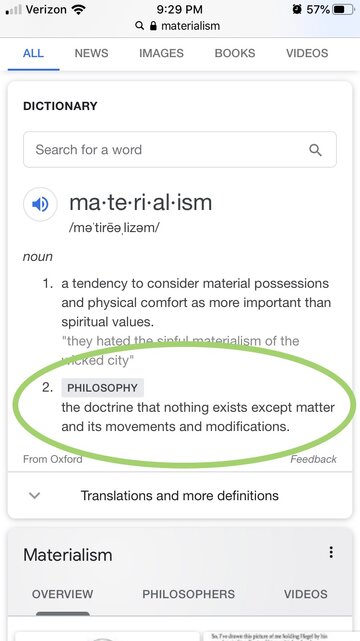Here is a link to another of Renaud Barbaras's books available in English translation, entitled Desire and Distance: Introduction to a Phenomenology of Perception, in which Barbaras further develops phenomenology in ways that might respond to some of @Michael Allen's approaches or presuppositions.
Desire and Distance: Introduction to a Phenomenology of Perception (Cultural Memory in the Present): Renaud Barbaras, Paul B. Milan: 9780804746458: Amazon.com: Books
Amazon description: "Desire and Distance constitutes an important new departure in contemporary phenomenological thought, a rethinking and critique of basic philosophical positions concerning the concept of perception presented by Husserl and Merleau-Ponty, though it departs in significant and original ways from their work. Barbaras's overall goal is to develop a philosophy of what "life" is-one that would do justice to the question of embodiment and its role in perception and the formation of the human subject. Barbaras posits that desire and distance inform the concept of "life." Levinas identified a similar structure in Descartes's notion of the infinite. For Barbaras, desire and distance are anchored not in meaning, but in a rethinking of the philosophy of biology and, in consequence, cosmology. Barbaras elaborates and extends the formal structure of desire and distance by drawing on motifs as yet unexplored in the French phenomenological tradition, especially the notions of "life" and the "life-world," which are prominent in the later Husserl but also appear in non-phenomenological thinkers such as Bergson. Barbaras then filters these notions (especially "life") through Merleau-Ponty."
Extracts from reviews:
"As an attempt to grasp the specificity of the phenomenon as it comes to be, that of the world within which it appears, and that of the subject to whom it becomes apparent, Desire and Distance is an ambitious, dense, rigorously argued work of philosophy in the phenomenological tradition, certainly amongst the most original of recent years." (Philosophy in Review/Comptes Rendus philosophiques)
"Desire and Distance is based on recent research and presents new ideas on the problem of perception―ideas that are quite enticing. Barbaras is the world's leading Merleau-Ponty scholar, but what makes this book remarkable and philosophically important is that Barbaras distances himself from Merleau-Ponty and develops his own set of concepts with a high level of originality. In my opinion, Barbaras' book is remarkable."―Leonard Lawlor, University of Memphis
Review for Amazon:

StreetlightReader
5.0 out of 5 starsOn the Life of Perception
October 7, 2015
Format: Paperback
Although best known in the English speaking world for his ground-breaking study of Maurice Merleau-Ponty's phenomenological ontology (cf. The Being of the Phenomenon), Renaud Barbaras has been vibrantly forging his own path among the phenomenological thicket for the better part of the last two decades. Desire and Distance - his only other full-length publication translated into English so far - gives us a valuable glimpse into the philosophical expanse since treaded by this remarkable thinker. While the presence and influence of Merleau-Ponty still bears heavily upon the work, it's clear that Barbaras here has struck out on his own, renovating and extending the insights previously gleaned from his studies into new investigative terrain. As such, although billed as an 'introduction' to a phenomenology of perception, the introductory nature of the book lies less in its pedagogic value - this isn't at all a book for beginners - so much as in its attempt to lay down anew the principles of any future phenomenological investigation.
In line with this goal, Barbaras begins by reconceptualizing the methodological lynch-pin which, from Husserl onwards, has grounded the practice of any phenomenological enterprise worthy of the name: the phenomenological reduction, or the 'epoche' otherwise known. If, as Barbaras notes, the whole point of phenomenology is to pay strict attention to the specificity of appearance without bringing into it any extraneous categories of analysis which would compromise that specificity, Husserl unfortunately makes just such a compromise in his conception of the epoche. By formulating the reduction as he does - in terms of the suspension [of] judgment with regard to the existence of the world - Husserl ultimately sneaks in presuppositions about appearance that do not in fact stay true to the domain of experience to which phenomenology owes its fidelity - namely, that the being of the appearance is an 'all or nothing' deal, one in which appearance is 'pre-judged' as that which simply does not exist, or exists only in terms of a sheer positivity set off against a background of pure nothingness.
In laying down this critique, Barbaras enlists the services of Henri Bergson, whose critique of metaphysics famously charged the privileging of nothing over something as a 'retrograde movement of the true' (and dismantling the metaphysical question 'why is there something rather than nothing?', right at its core). Yet unlike Bergson however, Barbaras does not so much reject negativity so as to valorise the positivity of being so much as he attempts to reinscribe the negative right into the heart of being itself; as he puts it, "it is not a question of a dimension that would be added to being or that would carve out its constitutive density, but of a negativity that is constitutive of being itself, that is inherent in appearance." It is, in other words, nothing less than an irreducible 'Distance' written into the very structure of phenomenality itself. Following the lead of Jan Patocka, who is the other protagonist of the book (along with Merleau-Ponty), Barbaras thus provocatively draws the conclusion that, in an exact inversion of the classical Husserlian understanding of the epoche, the latter "does not lead from the suspension of the world... to the thing; rather, it leads from suspension of the thing, via negation of nothingness, to recognition of the world."
While the precise logic of Barbaras's reading of the epoche can only be gleaned in passing here, his exacting analysis in fact only serves as the spring-board from which he launches into an incredible phenomenological recognition of the primacy of movement with respect to perception. For Barbaras, it is in fact movement - or rather, 'living movement' - which provides key to perception. It is ultimately living bodies, animate forms who, being able to reorient themselves with respect to the differing profiles of the world, give body to the 'concrete nothingness' that structures all perception. This phenomenological cashing out of negativity in terms of movement leads then to Barbaras's ultimate claim: that a phenomenology of perception, in the last analysis, resolves into a phenomenology of life. Neither life, nor movement, nor perception can be thought without the other, insofar as it is living, and thus motile organisms who are the subjects of perception. The last chapter of Desire and Distance will go on to further explicate this in terms of an originary Desire that Barbaras specifies as the 'essence of subjectivity'.
A brilliant achievement in its own right, the prescience of Desire and Distance can be drawn out even further when placed side by side with a book like Maxine Sheets-Johnstone's The Primacy of Movement, which, although approaching the topic from an evolutionary-developmental standpoint, reaches much the same conclusions, even if pitched in an entirely different idiom. My only wish is that Barbaras's essays on Hans Jonas - elsewhere translated into English - could have also made their way into this book, insofar as they extend and flesh out many of the themes and concerns elaborated upon here (search for them if you've read this book!). In any case, anyone who is eager to see the relevance of a twenty-first century phenomenology, or indeed, interested in the nexus between perception and life, ought to look no further than this excellent volume."
Desire and Distance: Introduction to a Phenomenology of Perception (Cultural Memory in the Present): Renaud Barbaras, Paul B. Milan: 9780804746458: Amazon.com: Books
Amazon description: "Desire and Distance constitutes an important new departure in contemporary phenomenological thought, a rethinking and critique of basic philosophical positions concerning the concept of perception presented by Husserl and Merleau-Ponty, though it departs in significant and original ways from their work. Barbaras's overall goal is to develop a philosophy of what "life" is-one that would do justice to the question of embodiment and its role in perception and the formation of the human subject. Barbaras posits that desire and distance inform the concept of "life." Levinas identified a similar structure in Descartes's notion of the infinite. For Barbaras, desire and distance are anchored not in meaning, but in a rethinking of the philosophy of biology and, in consequence, cosmology. Barbaras elaborates and extends the formal structure of desire and distance by drawing on motifs as yet unexplored in the French phenomenological tradition, especially the notions of "life" and the "life-world," which are prominent in the later Husserl but also appear in non-phenomenological thinkers such as Bergson. Barbaras then filters these notions (especially "life") through Merleau-Ponty."
Extracts from reviews:
"As an attempt to grasp the specificity of the phenomenon as it comes to be, that of the world within which it appears, and that of the subject to whom it becomes apparent, Desire and Distance is an ambitious, dense, rigorously argued work of philosophy in the phenomenological tradition, certainly amongst the most original of recent years." (Philosophy in Review/Comptes Rendus philosophiques)
"Desire and Distance is based on recent research and presents new ideas on the problem of perception―ideas that are quite enticing. Barbaras is the world's leading Merleau-Ponty scholar, but what makes this book remarkable and philosophically important is that Barbaras distances himself from Merleau-Ponty and develops his own set of concepts with a high level of originality. In my opinion, Barbaras' book is remarkable."―Leonard Lawlor, University of Memphis
Review for Amazon:
StreetlightReader
5.0 out of 5 starsOn the Life of Perception
October 7, 2015
Format: Paperback
Although best known in the English speaking world for his ground-breaking study of Maurice Merleau-Ponty's phenomenological ontology (cf. The Being of the Phenomenon), Renaud Barbaras has been vibrantly forging his own path among the phenomenological thicket for the better part of the last two decades. Desire and Distance - his only other full-length publication translated into English so far - gives us a valuable glimpse into the philosophical expanse since treaded by this remarkable thinker. While the presence and influence of Merleau-Ponty still bears heavily upon the work, it's clear that Barbaras here has struck out on his own, renovating and extending the insights previously gleaned from his studies into new investigative terrain. As such, although billed as an 'introduction' to a phenomenology of perception, the introductory nature of the book lies less in its pedagogic value - this isn't at all a book for beginners - so much as in its attempt to lay down anew the principles of any future phenomenological investigation.
In line with this goal, Barbaras begins by reconceptualizing the methodological lynch-pin which, from Husserl onwards, has grounded the practice of any phenomenological enterprise worthy of the name: the phenomenological reduction, or the 'epoche' otherwise known. If, as Barbaras notes, the whole point of phenomenology is to pay strict attention to the specificity of appearance without bringing into it any extraneous categories of analysis which would compromise that specificity, Husserl unfortunately makes just such a compromise in his conception of the epoche. By formulating the reduction as he does - in terms of the suspension [of] judgment with regard to the existence of the world - Husserl ultimately sneaks in presuppositions about appearance that do not in fact stay true to the domain of experience to which phenomenology owes its fidelity - namely, that the being of the appearance is an 'all or nothing' deal, one in which appearance is 'pre-judged' as that which simply does not exist, or exists only in terms of a sheer positivity set off against a background of pure nothingness.
In laying down this critique, Barbaras enlists the services of Henri Bergson, whose critique of metaphysics famously charged the privileging of nothing over something as a 'retrograde movement of the true' (and dismantling the metaphysical question 'why is there something rather than nothing?', right at its core). Yet unlike Bergson however, Barbaras does not so much reject negativity so as to valorise the positivity of being so much as he attempts to reinscribe the negative right into the heart of being itself; as he puts it, "it is not a question of a dimension that would be added to being or that would carve out its constitutive density, but of a negativity that is constitutive of being itself, that is inherent in appearance." It is, in other words, nothing less than an irreducible 'Distance' written into the very structure of phenomenality itself. Following the lead of Jan Patocka, who is the other protagonist of the book (along with Merleau-Ponty), Barbaras thus provocatively draws the conclusion that, in an exact inversion of the classical Husserlian understanding of the epoche, the latter "does not lead from the suspension of the world... to the thing; rather, it leads from suspension of the thing, via negation of nothingness, to recognition of the world."
While the precise logic of Barbaras's reading of the epoche can only be gleaned in passing here, his exacting analysis in fact only serves as the spring-board from which he launches into an incredible phenomenological recognition of the primacy of movement with respect to perception. For Barbaras, it is in fact movement - or rather, 'living movement' - which provides key to perception. It is ultimately living bodies, animate forms who, being able to reorient themselves with respect to the differing profiles of the world, give body to the 'concrete nothingness' that structures all perception. This phenomenological cashing out of negativity in terms of movement leads then to Barbaras's ultimate claim: that a phenomenology of perception, in the last analysis, resolves into a phenomenology of life. Neither life, nor movement, nor perception can be thought without the other, insofar as it is living, and thus motile organisms who are the subjects of perception. The last chapter of Desire and Distance will go on to further explicate this in terms of an originary Desire that Barbaras specifies as the 'essence of subjectivity'.
A brilliant achievement in its own right, the prescience of Desire and Distance can be drawn out even further when placed side by side with a book like Maxine Sheets-Johnstone's The Primacy of Movement, which, although approaching the topic from an evolutionary-developmental standpoint, reaches much the same conclusions, even if pitched in an entirely different idiom. My only wish is that Barbaras's essays on Hans Jonas - elsewhere translated into English - could have also made their way into this book, insofar as they extend and flesh out many of the themes and concerns elaborated upon here (search for them if you've read this book!). In any case, anyone who is eager to see the relevance of a twenty-first century phenomenology, or indeed, interested in the nexus between perception and life, ought to look no further than this excellent volume."
Last edited:




